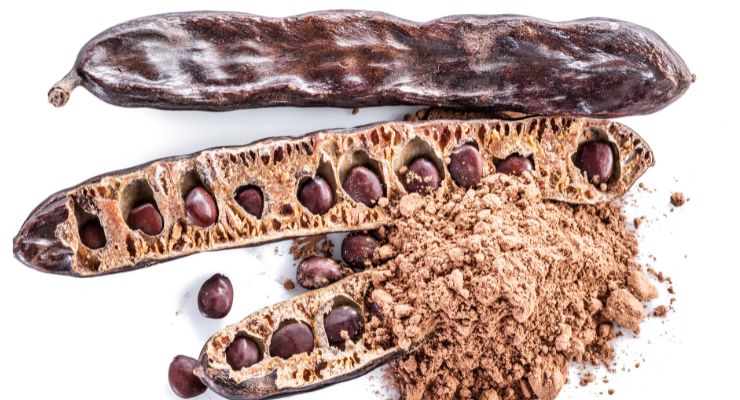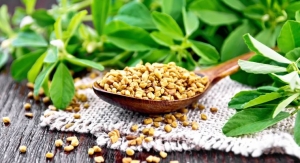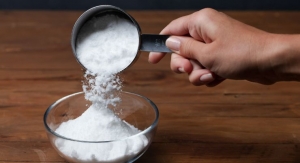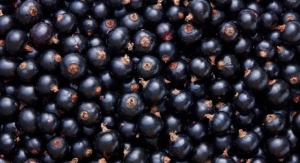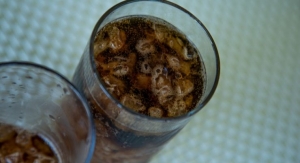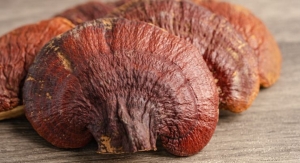07.07.23
Booth S3471Q
CarobWay will introduce its clean-label, low glycemic index (GI) sweetener at IFT FIRST 2023.
The company will demonstrate the new sweetener in a gummy and in energy bar protogtypes. The sweetener is derived from carob fruit.
“Our natural sugar replacer provides a holistic solution based on all the goodness found in carob,” said Udi Alroy, CEO and co-founder of CarobWay. “You can plug it easily into almost any food and beverage application. Thanks to our extensive dendrological research, we chose specific varieties of the carob tree that grow locally and whose fruit provides a mild, pleasing caramel flavor. Many carob sweeteners can have a faint bitter note, but CarobWay’s sweetener is clean and flavorful. “This zero-waste sweetener is made from deseeded pods and available as a syrup.
Carob is considered an eco-friendly crop as it has high carbon storage capabilities and flourishes in marginal lands. It supports biodiversity, and can help to prevent wildfires, the company reports. The company runs a vertically-integrated operation and is committed to fair trade practices while ensuring a stable supply chain.
D-pinitol
The unique composition of the novel sweetener includes various sugars as well as D-pinitol, a polyol, and trace soluble fibers and polyphenols. D-pinitol is roughly half as sweet as sucrose, and is naturally occurring in the carob fruit, and is considered to be a potentially beneficial bioactive ingredient.
Primarily, research has linked its consumption to lower blood glucose levels, which could be owed due to having insulin-regulating abilities. It has also been studied for antioxidant and inflammatory modulating purposes, and for cognitive, immunity, and liver support.
Bioavailability Study
CarobWay conducted a bioavailaibility study using a Simulator of the Human Intestinal Microbial Ecosystem (SHIME) in vitro model. The study demonstrated that D-pinitol is highly bioavailable, while other carob sugars were absorbed more slowly.
“This is good news for prediabetics who desire to enjoy pastry confections and sweets,” said Monica Colt, PhD, scientific director for CarobWay. “The study results of our carob ingredients are highly promising, and we are continuing to explore carob’s impressive values.”
“Consumers are seeking clean CPG products that are better-for-you, and kind to the planet,” said Alroy. “It is not enough to provide natural sweetness. CarobWay’s sweetener is a natural, single ingredient to help food and beverage companies to attain a cleaner label for their products. We welcome visitors to IFT to taste our sweetener in a variety of applications and discover the full benefits of CarobWay sweetener. It can replace up to 100% of the sugars in the energy bar and about 40% of the sugars in gummies. Both demonstration products are plant-based and non-GMO, appealing to consumers who want an enjoyable treat with a purpose.”
CarobWay will introduce its clean-label, low glycemic index (GI) sweetener at IFT FIRST 2023.
The company will demonstrate the new sweetener in a gummy and in energy bar protogtypes. The sweetener is derived from carob fruit.
“Our natural sugar replacer provides a holistic solution based on all the goodness found in carob,” said Udi Alroy, CEO and co-founder of CarobWay. “You can plug it easily into almost any food and beverage application. Thanks to our extensive dendrological research, we chose specific varieties of the carob tree that grow locally and whose fruit provides a mild, pleasing caramel flavor. Many carob sweeteners can have a faint bitter note, but CarobWay’s sweetener is clean and flavorful. “This zero-waste sweetener is made from deseeded pods and available as a syrup.
Carob is considered an eco-friendly crop as it has high carbon storage capabilities and flourishes in marginal lands. It supports biodiversity, and can help to prevent wildfires, the company reports. The company runs a vertically-integrated operation and is committed to fair trade practices while ensuring a stable supply chain.
D-pinitol
The unique composition of the novel sweetener includes various sugars as well as D-pinitol, a polyol, and trace soluble fibers and polyphenols. D-pinitol is roughly half as sweet as sucrose, and is naturally occurring in the carob fruit, and is considered to be a potentially beneficial bioactive ingredient.
Primarily, research has linked its consumption to lower blood glucose levels, which could be owed due to having insulin-regulating abilities. It has also been studied for antioxidant and inflammatory modulating purposes, and for cognitive, immunity, and liver support.
Bioavailability Study
CarobWay conducted a bioavailaibility study using a Simulator of the Human Intestinal Microbial Ecosystem (SHIME) in vitro model. The study demonstrated that D-pinitol is highly bioavailable, while other carob sugars were absorbed more slowly.
“This is good news for prediabetics who desire to enjoy pastry confections and sweets,” said Monica Colt, PhD, scientific director for CarobWay. “The study results of our carob ingredients are highly promising, and we are continuing to explore carob’s impressive values.”
“Consumers are seeking clean CPG products that are better-for-you, and kind to the planet,” said Alroy. “It is not enough to provide natural sweetness. CarobWay’s sweetener is a natural, single ingredient to help food and beverage companies to attain a cleaner label for their products. We welcome visitors to IFT to taste our sweetener in a variety of applications and discover the full benefits of CarobWay sweetener. It can replace up to 100% of the sugars in the energy bar and about 40% of the sugars in gummies. Both demonstration products are plant-based and non-GMO, appealing to consumers who want an enjoyable treat with a purpose.”

